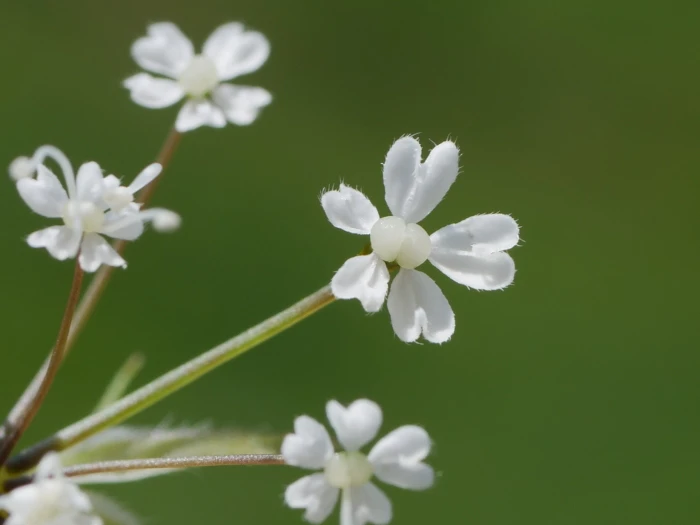Villars’s Chervil
(Chaerophyllum villarsii)
Villars’s Chervil (Chaerophyllum villarsii)
/
/

Wolfgang Jauch
CC BY 4.0
Image By:
Wolfgang Jauch
Recorded By:
Copyright:
CC BY 4.0
Copyright Notice:
Photo by: Wolfgang Jauch | License Type: CC BY 4.0 | License URL: http://creativecommons.org/licenses/by/4.0/ | Rights Holder: Wolfgang Jauch | Publisher: iNaturalist | Date Created: 2021-07-21T10:56:43-07:00 |

























Estimated Native Range
Climate Requirements
| • Precipitation | 51" - 69" |
| • High Temp. | 58°F - 71°F |
| • Low Temp. | 15°F - 24°F |
Summary
Chaerophyllum villarsii, commonly known as Villars’s Chervil, is a deciduous perennial herb that originates from the montane regions of Europe, particularly the Alps. It is typically found in subalpine and alpine meadows, as well as in open woodlands, often favoring calcareous soils. Villars’s Chervil reaches a height of 1.5-3 feet (0.46-0.9 meters) and is characterized by its umbels of cream or white flowers that bloom in the spring, offering a delicate appearance. The plant has a clump-forming habit and features pinnate leaves that are soft to the touch.
Villars’s Chervil is valued for its attractive foliage and flowers, which can add texture and subtle color to shaded garden areas. It is suitable for woodland gardens, borders, and as part of a mixed herbaceous planting. In cultivation, it requires part shade, thriving in medium draining loam or clay soils, and benefits from consistent moisture without waterlogging. While it is not commonly known for significant pest or disease issues, it can be susceptible to root rot in overly wet conditions. Gardeners should be aware that this plant may self-seed and spread if conditions are favorable, which can be managed by deadheading spent flowers.CC BY-SA 4.0
Villars’s Chervil is valued for its attractive foliage and flowers, which can add texture and subtle color to shaded garden areas. It is suitable for woodland gardens, borders, and as part of a mixed herbaceous planting. In cultivation, it requires part shade, thriving in medium draining loam or clay soils, and benefits from consistent moisture without waterlogging. While it is not commonly known for significant pest or disease issues, it can be susceptible to root rot in overly wet conditions. Gardeners should be aware that this plant may self-seed and spread if conditions are favorable, which can be managed by deadheading spent flowers.CC BY-SA 4.0
Plant Description
- Plant Type: Herb
- Height: 1.5-3 feet
- Width: 1-2 feet
- Growth Rate: Moderate
- Flower Color: Cream, White
- Flowering Season: Spring
- Leaf Retention: Deciduous
Growth Requirements
- Sun: Part Shade
- Water: Medium
- Drainage: Medium
Common Uses
Border Plant, Low Maintenance
Natural Habitat
Subalpine and alpine meadows, and open woodlands
Other Names
Common Names:
Scientific Names: Chaerophyllum villarsii, Chaerophyllum alpestre, Chaerophyllum cicutaria subsp. villarsii, Chaerophyllum cicutaria var. alpestre, Chaerophyllum cicutariiforme, Chaerophyllum hirsutum, Chaerophyllum hirsutum, Chaerophyllum hirsutum f. intercedens, Chaerophyllum hirsutum f. rigidum
GBIF Accepted Name: Chaerophyllum villarsii